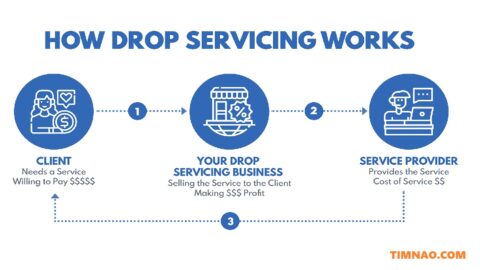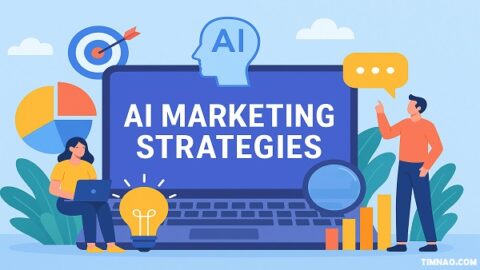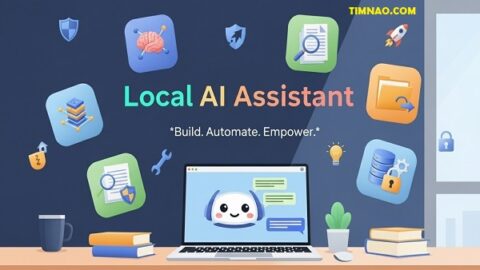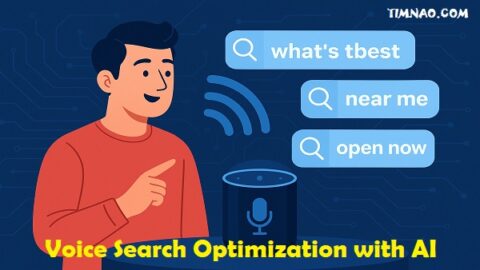AI Avatars and Chatbots Are Transforming the Digital World
AI avatars and AI chatbots are no longer futuristic ideas — they are reshaping how businesses interact with customers, build software, and market their products. Whether it’s a virtual assistant handling support tickets at 2 AM or an AI avatar guiding a shopper through a personalized beauty tutorial, these tools are enhancing user experience, saving costs, and scaling business like never before.
In this guide, we’ll explore how AI avatars and chatbots are driving this revolution — and what it means for your brand, tech stack, and marketing playbook in 2025.
🔥 What Are AI Avatars and Chatbots?
AI Avatars: The Digital Face of Your Brand
AI avatars are hyper-realistic digital personas powered by generative AI, capable of mimicking human expressions, tone, and even emotions. From customer support to influencer-style brand ambassadors, they’re creating human-like connections in a scalable, 24/7 format.
AI Chatbots: Smart, Fast, and Learning
Modern AI chatbots leverage NLP (Natural Language Processing), transformers (like GPT-4), and machine learning to understand complex queries, respond naturally, and even detect emotions. Unlike rule-based bots of the past, today’s chatbots can think, adapt, and learn — making them indispensable tools for real-time customer interaction.
💬 1. Elevating Customer Interaction with AI Chatbots
24/7 Availability
AI chatbots and avatars never sleep. They offer:
- Instant responses across time zones
- Multilingual support
- Reduced wait times
This “always-on” support builds customer trust while saving companies millions in operational costs.
Emotional Intelligence: The Game-Changer
Today’s emotionally intelligent AI chatbots can:
- Read tone and sentiment from voice/text
- Adjust responses with empathy
- Diffuse tension and provide comfort in stressful scenarios
Example: Woebot, a mental health chatbot, uses emotional intelligence to provide therapeutic conversations for users dealing with anxiety or depression.
🤖 2. The Human Face of AI: How AI Avatars Build Trust
AI avatars now function as:
- Virtual assistants for banks, stores, and health providers
- Online educators and tutors (e.g., Duolingo’s bots)
- Social media influencers (e.g., Lil Miquela)
These avatars blend visual realism with voice AI and behavioral intelligence, creating human-like experiences that boost trust, engagement, and brand relatability.
⚙️ 3. Powering Software Development with AI Coding Assistants
Coding Companions
Tools like GitHub Copilot and Amazon CodeWhisperer use AI to:
- Suggest code in real-time
- Write documentation
- Predict functions and debug
These tools speed up development cycles and help junior developers learn faster — making AI a silent partner in every IDE.
Future of Autonomous Coding
AI is heading toward full-stack automation. In the near future:
- Developers could describe an app in plain English
- AI systems will generate entire apps from scratch
- QA, deployment, and scaling might become fully automated
Example: DeepMind’s AlphaCode already solves complex programming tasks autonomously — a glimpse into the coding future.
📈 4. Revolutionizing Marketing with AI Avatars and Chatbots
Personalized Campaigns at Scale
AI avatars and chatbots personalize content and ads by:
- Analyzing user behavior
- Predicting preferences
- Serving dynamic content in real time
They allow brands to create hyper-targeted experiences with minimal human effort.
AI Avatars as Brand Ambassadors
L’Oréal’s virtual beauty advisor helps users try products virtually. Nike uses AI avatars in AR to deliver immersive experiences. These interactive personas boost engagement, conversions, and retention.
Chatbots as Marketing Analysts
Chatbots gather data on:
- Sentiment trends
- Product feedback
- Customer needs
This data feeds into marketing strategies, helping teams build smarter, more agile campaigns.
🚨 5. Deepfakes and Digital Security: The Dark Side of Generative AI
Not all AI innovation is harmless.
Deepfake Threats
With generative AI tools, it’s possible to create:
- Fake videos of public figures
- AI-generated phishing calls
- Identity theft via AI face/voice cloning
Real-Time Detection & Prevention
Security platforms now use:
- Deepfake detection algorithms
- Blockchain verification
- Real-time audio/video analysis
Cybersecurity in 2025 must evolve to stay ahead of bad actors using generative AI.
⚖️ 6. Ethics of AI Avatars and Chatbots: Where We Draw the Line
Key Issues:
- Transparency: Are users aware they’re talking to a bot?
- Privacy: Are personal data and biometric info protected?
- Bias & Fairness: Are the AI’s responses unbiased and inclusive?
Regulations like the EU AI Act are setting new standards. Businesses must ensure their AI tools follow ethical practices — or risk losing trust.
🔮 7. Future Trends: Where AI Chatbots & Avatars Are Headed Next
Integration with IoT and Smart Devices
Imagine an AI avatar embedded in your car dashboard, fridge, or smart mirror — guiding you with natural, voice-based interactions. This is becoming a reality in the next wave of AI + IoT convergence.
Hyper-Personalization
AI will soon anticipate your needs before you say anything. Whether you’re shopping, learning, or working, avatars and chatbots will adapt in real-time to your preferences and emotions.
Human-AI Collaboration
AI isn’t replacing humans — it’s augmenting them. Customer support reps, developers, and marketers will work alongside AI tools for greater speed, scale, and creativity.
🛠️ 8. How to Create AI Avatars and Chatbots: Best Tools & Simple Steps
Now that we’ve explored how AI avatars and chatbots are transforming industries, let’s get practical. Whether you’re a small business owner, content creator, or developer, there are powerful no-code and low-code platforms that let you build AI avatars and chatbots fast — no PhD required.
Here are some of the best tools to get started:
🎤 1. Synthesia – Create Talking AI Avatars for Video
Use Case: AI avatar videos for customer onboarding, training, product demos, ads.
Website: https://www.synthesia.io
Steps to Create an AI Avatar Video:
- Sign up at Synthesia.io
- Choose an avatar (you can even upload your own custom avatar)
- Type your script (40+ languages supported)
- Select voice tone, language, and background
- Render and download your video
✅ Great for marketers, educators, and agencies who want engaging explainer videos.
🤖 2. Botpress – Build Advanced AI Chatbots (Open Source + GPT Support)
Use Case: Conversational chatbots for websites, apps, or WhatsApp.
Website: https://www.botpress.com
Steps to Create an AI Chatbot:
- Sign up and start a new bot project
- Use the visual flow editor to map out questions/answers
- Integrate GPT or Claude for natural conversations
- Deploy on website, mobile, or messaging apps
✅ Loved by developers who want custom workflows and API integrations.
💬 3. Tidio – All-in-One Live Chat + AI Chatbot for Websites
Use Case: E-commerce, SaaS, and customer support websites.
Website: https://www.tidio.com
Steps to Create an AI Chatbot:
- Sign up and install Tidio on your website
- Choose a chatbot template (e.g., welcome, product recommendation, FAQ)
- Customize bot responses using a drag-and-drop builder
- Launch it instantly with live chat integration
✅ No-code, fast setup — perfect for Shopify or WordPress stores.
🧠 4. Character.ai – Create AI Personalities and Roleplay Avatars
Use Case: Virtual personalities, creative storytelling, entertainment bots.
Website: https://www.character.ai
Steps to Build an AI Avatar Bot:
- Create an account on Character.AI
- Start a new character
- Customize name, description, voice style, and knowledge base
- Train with examples and test interactions
- Share via link or embed on your site
✅ Ideal for creators, streamers, and content marketers who want engaging interactions.
👩💼 5. D-ID – Turn Text into Talking AI Avatars (With Real Faces)
Use Case: Corporate presentations, product videos, AI agents.
Website: https://www.d-id.com
How to Use It:
- Upload a photo or use a ready-made avatar
- Type your script or use text-to-speech
- Choose a voice and language
- Generate a talking head video in minutes
✅ Great for professional content that feels human and personal.
🧍♂️ 6. Wondershare Virbo – AI Character Generator for Video, Games & Design
Use Case: Social media avatars, animated videos, game dev characters, and visual content creation.
Website: https://virbo.wondershare.com
What Makes It Special:
Virbo allows you to create stunning AI characters in various art styles using just text or image prompts. Choose from diverse ethnicities, outfits, aesthetics, and poses — perfect for content creators, brands, and game developers.
Steps to Create AI Avatars with Virbo:
- Visit the Virbo website and sign in.
- Select “AI Character Generator.”
- Choose whether to create from a text description or upload an image.
- Pick from various categories: casual, fantasy, futuristic, professional, etc.
- Customize skin tone, hairstyle, expression, outfit, and more.
- Download your avatar or integrate it into video and animation projects directly inside Wondershare tools like Filmora or DemoCreator.
✅ Perfect for creators who want full visual control and beautiful AI characters without needing a designer.
✨ BONUS: Free/AI-Enhanced Chatbot Builders
| Tool | Description | Link |
|---|---|---|
| Chatfuel | No-code Facebook Messenger & WhatsApp bots | chatfuel.com |
| ManyChat | Chatbots for IG, FB, SMS with automation flows | manychat.com |
| Flowise AI | Open-source visual builder for LangChain/GPT | flowiseai.com |
| Landbot | Beautiful chatbot UIs for lead capture | landbot.io |
| HeyGen | AI avatar video generator + multilingual support | heygen.com |
🚀 Final Thoughts: Start Creating with AI Today
As we’ve seen, AI avatars and chatbots aren’t just futuristic hype — they’re here, practical, and ready for you to use. With tools like Synthesia, Tidio, and Botpress, you can start building your own intelligent assistant or digital brand face today.
And the best part? Many platforms offer free plans or trials, so you can experiment without risk.
👉 Whether you want to reduce support costs, increase sales, or boost engagement — now’s the perfect time to integrate AI avatars and chatbots into your digital strategy.
Reference video:








